Best Oncology Treatment in India
Cancer – Treatment, Surgery, Cost, Options, Types, Causes and Diagnosis
Cancer is a dire disease wherein a few cells in the body happen to develop hysterically and continue to spread in the body. These cancerous cells can form in any body part of a human body among the rest of the cells. In the human body, the process of cell division helps the cells in the body to divide and grow appropriately. It also means that old cells need to die, and new cells will take their place. But at times, the process due to disruption tends to multiply and develop abnormal cells, which in turn form tumors. You will know about cancer treatment, types, options, causes etc. ahead.There are 62 cancer hospitals and care centers in India throughout the country out of these 27 centers have recognition from the Government of India. India has reached an advanced level in cancer treatment and provides benchmark treatment than most developed countries. The care centers and best cancer hospitals in India plan recommended treatments and follow all the guidelines by NCCN. People visit India to get treatment for the disease with complete satisfaction globally. The top cancer hospitals in India are well-equipped with labs, nuclear medicines, and radiology facilities with all the modes of treatment.
Cancer is a group of diseases that cause the uncontrolled growth and spread of abnormal cells within the body. These abnormal cells can affect any part of the body. Cancer affected cells behave irregularly and stop the normal functioning such as growth, division, and replacement. These cells can produce tumors, which can be benign (non-cancerous) or malignant (cancerous). Cancerous tumors can spread to nearby tissues and even move to other parts of the body by a process known as metastasis.
Cancer is the most common cause of death worldwide, affecting almost one out of every six deaths. One-third of cancer-related deaths are due to factors such as tobacco use, high body mass index (BMI), excessive drinking, and a lack of physical activity.
Despite the global impact of cancer, developments in early diagnosis, new drugs, and improvements in early risk identification have resulted in improved cancer treatment outcome. Because of its remarkable quality and cost-effectiveness, cancer treatment in India gained worldwide recognition and attracted cancer patients from all over the world.
Types of Cancer
There are multiple types of cancer, which are sometimes termed after their origin, such as lung or brain cancer, or after the type of cell involved. According to the American Cancer Society, almost half of all males and one-third of all females will develop cancer during their lives.Some common types of cancer include:
- Breast Cancer
- Lung Cancer
- Colon and Rectal Cancer (Colorectal Cancer)
- Prostate Cancer
- Skin Cancer
- Ovarian Cancer
- Cervical Cancer
- Pancreatic Cancer
- Leukemia
- Lymphoma
- Brain Cancer
- Bladder Cancer
Development of Cancer in the body
Cancer develops by gene mutations that disrupt normal cell growth mechanisms. These gene mutations can cause cells to grow fast, lose their ability to stop excessive growth, or create defects in DNA repair. While some DNA mutations are inherited, the vast majority are caused by smoking, radiation, viruses, toxins, obesity, hormones, inflammation, or a lack of physical activity.Cancer develops when these modified genes cause cancerous cells to multiply and combine to form tumors. Metastasis occurs when cancerous cells separate from tumors and spread throughout the body via the lymphatic system or blood circulation. Cancer’s ability to enter and set up itself in different parts of the body highlights its deadly nature.
Signs and Symptoms of Cancer
Symptoms of Early Cancer:
- Uncertain reason for weight loss or weight gain
- Tiredness for a long time
- Fever that occurs mainly at night
- Skin changes
- Persistent muscle or joint pain
Symptoms of Advanced Cancer:
- Easily bruising or bleeding
- Lumps or bumps under the skin that do not go away
- Trouble in breathing
- Difficulty in swallowing
- Changes in bowel or bladder habits
Risk Factors associated with Cancer
- Age: Cancer is most commonly detected in persons aged 65 and older, but it can afflict people of all ages.
- Lifestyle Habits: Cancer risks are increased by smoking, excessive alcohol consumption, sun exposure that produces sunburns, obesity, and dangerous sexual practices.
- Family History: While just a small percentage of cancers are inherited, a cancer family history may indicate a greater risk.
- Chronic Health Conditions: Some chronic illnesses, such as ulcerative colitis, can increase the risk of cancers.
- Environmental Factors: Exposure to toxic substances in the environment, such as asbestos, radon, and pesticides, can increase the risk of developing cancer.
- Radiation Exposure: UV radiation from the sun, as well as excessive radiation therapy, may increase the risk of skin cancer and other cancers.
- Hormone Therapy: Hormone replacement therapy has been associated with an increased risk of breast and endometrial cancer in women.
Diagnosis of Cancer
- Lab Tests: To look for signs of tumors, blood tests such as a complete blood cell count (CBC) and blood protein level are performed. Although these tests cannot confirm a cancer diagnosis, they are useful in detecting blood-related cancers such as leukemia and multiple myeloma.
- X-ray Tests: Imaging tests, such as X-rays, can identify abnormalities caused by cancer.
- MRI (Magnetic Resonance Imaging): MRI scans, such as breast MRI for breast cancer diagnosis, offer detailed images of specific body regions and are used to detect and evaluate tumors.
- Colonoscopy: This procedure visualizes the colon and can detect problems such as polyps and colorectal cancer.
- CT scan (Computed Tomography): CT scans are beneficial in diagnosing cancer and determining its stage.
- Ultrasound: It helps in the detection of tumors in the body, and doctors may use it for guided biopsies.
- Biopsy: When cancer has been detected, a small tissue sample is taken from the suspected cancer spot and examined by a pathologist to identify cancer cells and confirm the diagnosis.
- PET CT
- Genetic Testing: Individuals with an inherited cancer risk may benefit from genetic testing to identify specific genes associated with the growth of cancer. This can help with diagnosis as well as targeted therapy.
Stages of Cancer
After a cancer diagnosis, doctors evaluate the cancer’s stage to guide treatment and determine the probability of a cure. Staging tests, such as X-rays and bone scans, are used to figure out whether cancer has spread or not.
Cancer stages are represented numerically. Higher values indicate that the cancer has progressed:
- Stage 0: Cancer remains in the initial location (in situ), and is usually curable through surgery.
- Stage I: Early-stage cancer that has not spread to nearby tissues or lymph nodes.
- Stage II and III: Cancer has spread to nearby tissues and may have spread to lymph nodes.
- Stage IV: Cancer that has spread to other organs or areas is referred to as advanced or metastatic cancer.
Cancer Treatment in India
Cancer treatment in India provides a wide range of options, depending on the type of cancer and its stage. The primary goals of cancer treatment in India are to cure, control, or manage the disease, as well as to improve the patient’s quality of life.
Patients can receive various advanced cancer treatments through top Cancer hospitals in India, which is known for its strong healthcare infrastructure. These best Cancer Hospitals in India provide the best Cancer Treatment in India by tailoring treatment plans to each patient’s cancer type, stage, overall health, and treatment goals.
The following are the main cancer treatment methods used in India:
- Surgery: Surgery plays an important role in the treatment of cancer. Cancerous tissues or tumors are removed by skilled surgeons, with the objective of full remission whenever possible
- Chemotherapy: Chemotherapy involves powerful drugs that either kill or prevent the growth of cancer cells. It can be used as the primary treatment, as additional treatment after surgery, or as palliative care to manage symptoms and improve quality of life.
- Radiation Therapy: High-dose radiation is used to target and destroy cancer cells. It can be used on itself or in combination with other treatments like surgery or chemotherapy.
- Immunotherapy: Immunotherapy, also known as biological therapy, uses the immune system of the body to recognize and destroy cancer cells. This innovative method plays an important role in improving the immune response to cancer.
- Hormone Therapy: Hormone therapy is used to change hormone function or decrease hormone production in conditions where hormones support cancer growth, such as breast and prostate cancers.
- Targeted Drug Therapy: Targeted medications are designed to disrupt specific molecular defects within cancer cells, preventing them from growing and dividing.
- Bone Marrow Transplant: Stem cell or bone marrow transplants can help replace damaged bone marrow with healthy stem cells. This form of treatment is very effective for people suffering from blood cancers such as leukemia.
- Alternative Therapies: Acupuncture, yoga, massage, and meditation are examples of complementary treatments that are sometimes used in cancer care to reduce treatment-related symptoms and improve the patient’s overall health.
Side Effects of Cancer Treatment
All cancer treatments could result in side effects. Some of these side effects may last for years after the treatment is completed. The following are common side effects of cancer treatment in India:
- Fatigue
- Anemia
- Loss of Appetite
- Insomnia
- Hair Loss
- Nausea
- Lymphedema (swelling in limbs)
- Pain
- Immune System Depression
Blood Cancer Treatment in India
Hematologic cancer or blood cancer develops when the cells in the bone marrow grow at an abnormal rate interrupting the usual formation of blood cells. India provides precise cancer treatment for all kinds of blood cancers, namely Leukemia, Non-Hodgkin lymphoma, Hodgkin lymphoma, and Multiple myelomas. The cancer doctors in India will advise the best treatment plan according to the patient’s health and stage. The cancer treatment options in India are Chemotherapy, Stem-cell transplantation, Radiation therapy, and Immunotherapy.
Blood cancer is dreadful news for the patient and family, but cancer treatment in India can be efficient if detected early.
The symptoms of blood cancer are similar to symptoms of other diseases too so proper tests and consultations are a must to get the appropriate treatment. If the person is diagnosed with blood cancer, the treatment will be according to the origin of the tissue affected and its problems. Chronic myelomonocytic leukemia, primary myelofibrosis, and myeloproliferative neoplasms are some of the rare cancers. Whereas acute leukaemia, lymphomas, chronic leukaemia-lymphocytic, myeloma, and myelodysplastic syndrome are the commonly occurring cancer in the blood. The treatment is necessary, and after the proper treatment, the patient can resume daily activities and lead an everyday life. The person should monitor and actively take care of their health. Regular tests, appointments, and the best oncologists in India can help a patient to recover sooner.
Prostate Cancer Treatment in India
The prostate is an organ in males that is beneath the urinary bladder. Prostate cancer develops if the harmful cells attack the prostate tissues. The cancer cells can grow towards the tissues surrounding the prostate, bones, lymph nodes, or different parts. Few prostate cancers develop gradually and only require observation. The exact cause is unknown, but improper lifestyle activities like a fatty diet, obesity, low Vitamin D, smoking, old age, or family history can cause cancer. Moreover, other prostate cancers require proper treatment, such as surgery, radiation, chemotherapy, and hormone therapy.
Common cancer in men is prostate cancer around age 50, and the risk of developing cancer increases as age progresses. There are several treatment options available in India that can cure prostate cancer. In many men, cancer grows gradually and only requires monitoring and regular checkups to decide the necessity of treatment. If cancer needs therapy or has rapid growth, the best cancer doctors in India recommend other treatments, such as surgery, hormone therapy, radiation therapy, chemotherapy, and vaccination.
Breast Cancer Treatment in India
Cancer that develops in breast tissues is breast cancer. The cancer cells originate in the ducts or lobules and can occur in men and women. However, women have a higher risk of developing cancer, with around 76% of women getting diagnosed after crossing over 50 years. And the risk increases if they are related to patients with a history of breast cancer though it is only 5%-10% riskier. Cancer treatment in India is more beneficial in early detection so even a tiny breast lump is not affordable as the earlier treatment has better results and several options. The causes can be inactive lifestyle and obesity, late menopause, post-menopausal therapy, late pregnancy, or females with a history of breast conditions or cancer in the family.
With advanced medical treatments, breast cancer is efficiently treatable in India. The treatment depends on the person’s condition and stage of diagnosis. The best oncologists in India will diagnose the cancer treatment suitable for the patient in all aspects. In a few cases, over one therapy may be used for cancer treatment in India. Breast cancer therapies in top cancer hospitals in India include chemotherapy, surgery, radiation therapy, targeted therapy, hormone therapy, and Immunotherapy.
Colon Cancer Treatment in India
This cancer originates in the rectum or colon of the human body and is colorectal cancer. The large intestine or colon starts where the small intestine ends and ends at the rectum. Colorectal cancer can occur due to many factors that can increase its risk. These risks include a low-activity lifestyle, obesity, a history of colon cancer, a family history, and a history of ovarian, breast, endometrium, or ulcerative colitis. But people can have this cancer even without these risks. The treatment plan is advisable by the cancer doctor in India after complete diagnoses of health condition, age, type, and spread of cancer cells and the stage. The surgical option is the usual cancer treatment in India, advisable for colon and rectal cancer. In colon cancer, a part of the colon is detached. But in rectal cancer, many patients receive radiation for 6 to 8 weeks to proceed towards surgery. And in the early detection of cancer developing at the end of the rectum or anus, a tiny part gets removed by bringing it out from the surgical opening.
Colorectal cancer has excellent treatment options in India that can be single, dual, or one after another. The treatment plan is advisable by the cancer doctor in India after complete diagnoses of health condition, age, type, and spread of cancer cells and their level. The therapies for colon cancer in the best hospitals for cancer treatment in India include chemotherapy, radiotherapy, and surgery.
Lung Cancer Treatment in India
Lungs are present in the chest area, so cancer originating in the lung is lung cancer. The developing cancerous cells in the lung obstruct the usual healthy function of tissues. In most cases, the cells attack the airway lining in the lungs. As the suspicion index for the lung is low, most patients are already at higher levels. So they are two types’ non-small (cell carcinoma) and small (carcinoma cell). Lung cancer risk is for people in continuous contact with coal gas, asbestos, nickel, steel, chrome, or exposure to Radon gas and radiation. People with smoking habits are more prone to lung cancer. The cancer treatment in India for the patient will depend on the age, kind of cancer, health condition, and stage of cancer, lungs condition, and the patient’s decision.
Lung cancer treatment is outstanding in India, with advanced technological methods and teams to handle patients sensitively. The treatment for lung cancer in top hospitals for cancer treatment in India includes chemotherapy, surgery, radiation therapy, and Immunotherapy.
Skin Cancer Treatment in India
Skin cancer develops on the skin basically from exposure to the sun. It happens when the skin cells grow in an abnormal manner that can cause malignant tumors. All humans are at risk for skin cancer, but light skin tone people can be more at risk due to sunburn. Skin cancer is among the most common cancers, and older people have a high risk. The cause can be frequent exposure to chemicals (arsenic), UV light, X-rays, tanning bed, or a less active immune system.
India outstandingly provides skin cancer treatment with the help of skilled surgeons. The best oncologists in India plan cancer treatment with fewer disadvantages and more betterment in health. The treatments for skin cancer in India include cryosurgery, chemical peel, excisional surgery, laser therapy, micrographic surgery-Mohs, photodynamic therapy curettage, electrodesiccation, and radiation therapy.
Liver Cancer Treatment in India
The liver present in the chest area carries out several vital functions in the human body. Liver cancers are of two types; if the cancerous cells originate in the organ liver, it is hepatocellular cancer. If it develops in other parts and reaches the liver, it is liver metastases. There are cases in which the cancers originating from other organs like the lung, pancreas, colon, stomach, and breast reach the liver through blood circulation, causing cancer in the liver. The multiple causes invite the risk of liver cancer, like cirrhosis, where the liver cells destroy for scar tissues to replace them, bringing the person at greater risk for liver cancer. The other causes are diabetes, family history, alcoholism, smoking, and fatty liver disease.
Liver cancer has a surgical option as the best cancer treatment in India. And hence can be into two kinds of donor transplants, deceased liver transplant, and living liver transplant. Moreover, treatment in a top cancer hospital in India involves chemotherapy, radiation therapy, heating-freezing cells, and alcoholic injection in the tumor.
Ovarian Cancer Treatment in India
Ovaries are reproductive organs in females that are responsible for egg production. The unusual growth of malignant cells in the tissues of ovaries develops ovarian cancer. Ovarian cancer has low signs, so the tumor gets detected in advanced stages. The tumor can appear at any age, but older women over 60 are at more risk. This disease can occur in people with a family history of breast or ovarian cancer and a (personal)history of cancer disease like colorectal, breast, and uterine. The other causes can be age, fertility matters, early onset of mensuration, or late menopause. Obesity and hormone replacement procedures also increase the risk of ovarian cancer.
The treatment of ovarian cancer in India is magnificent. The best oncologist in India advises a plan after considering the patient’s health, age, stage, and area affected. The best hospitals for cancer treatment in India include therapies that are chemotherapy, surgery, targeted therapy, hormone therapy, and radiation therapy.
Stomach Cancer Treatment in India
The stomach is an organ that stores, assimilates, and digests food. Stomach cancer occurs when the cancerous cells develop in the internal lining, and these abnormal cells can form a tumor. Stomach cancer is the most commonly affected cancer in males and females. There are multiple types of stomach cancers, such as lymphoma, gastrointestinal tumors, and carcinoid tumors called gastric cancers. Treatment for stomach cancer is diagnosable by cancer doctors in India after studying the medical history of the cancer patient. The best oncologists also understand the present health condition, level of cancer, age, and the surrounding affected areas.
India provides excellent treatment for stomach cancer with expert doctors and well-equipped technology. The surgeons and doctors provide expert treatment and care for all patients. The treatments and procedures in the best cancer hospital in India include chemotherapy, surgery, targeted therapy, radiation therapy, and chemoradiation.
Chemotherapy Treatment for Cancer in India
Chemotherapy is a chemical treatment involving drugs that can destroy the developing cancer cells speedily in the body. Other treatments like radiation, targeted therapy, or surgery focus on a particular body part by removing or damaging the cancer cells. However, chemotherapy can provide therapy for the complete body. Depending on the patient’s health and state, chemotherapy can be given alone or can combine with other drugs for better treatment. Chemotherapy can help treat cancerous and non-cancerous cells with different doses. Chemotherapy has its goal to control, cure and relieve the symptoms due to cancer. Depending on the stage and cancer origin, the cancer doctor in India decides the treatment for all patients. Some patients require a single treatment, and few require combinations according to their levels.
Chemotherapy is actively practiced in India and performed under skilled doctors. The treatment procedures in India for cancer include chemotherapy, surgery, targeted therapy, and radiation therapy.
Cost of Cancer Treatment in India
India has achieved a benchmark in providing world-class treatment than various other developing countries. Though treating cancer is very expensive, cancer treatment in India is much lesser than in other countries. The cancer treatment cost in India is very reasonable, and the treatment quality is excellent. The cancer treatment cost may include the fee for the best oncologist in India and the hospital, along with the pre-treatment charge, post-treatment charge, tests, room in the hospital, meals, staff charges, and surgery charges. As per estimation, the minimum cost can be INR 90,000, the average price can be INR 5,00,000, and the maximum cost can be INR 27,00,000. The cancer treatment cost in India can differ in different cities, treatment required, cancer, and stage of cancer. The cost of treatment can vary with each patient, the health condition, age, level of cancer, and the area affected by cancer.
Based on cancer, the price range can be:
Blood cancer- $5908-$8,862
Breast cancer- $7,000-$8,500
Colorectal cancer- $1,200-$10,000
Prostate cancer- $5,500
Lung cancer- $5,377-$9,409
Based on different cities, the cost of treatment can be:
Bangalore- $1000 to $29000
Delhi- $1200 to $30000
Mumbai- $1200 to $32000
Gurgaon- $1000 to $29000
Chennai- $1000 to $27000
Hyderabad- $1000 to $29000
Best Hospitals in India
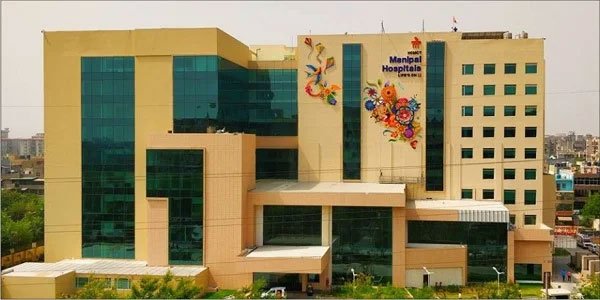
Manipal Hospial Dwarka
View Profile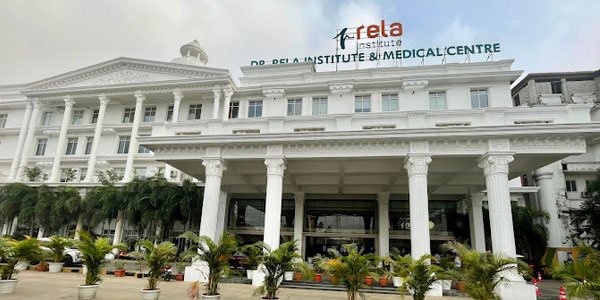
Dr. Rela Institute Medical Centre
View Profile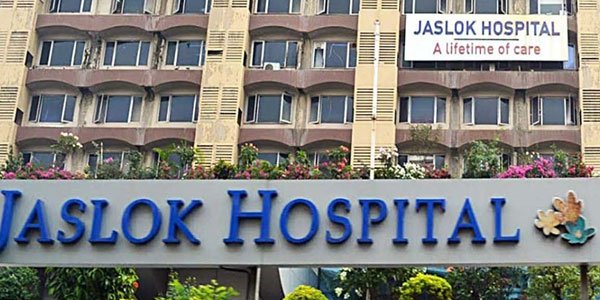
Jaslok Hospital
View Profile
W Pratiksha Hospital
View Profile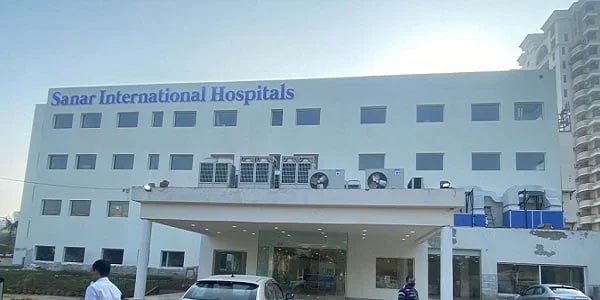
Sanar Hospital
View Profile
Fortis Memorial Research Institute
View Profile
Max Hospital
View Profile
BLK Hospital
View Profile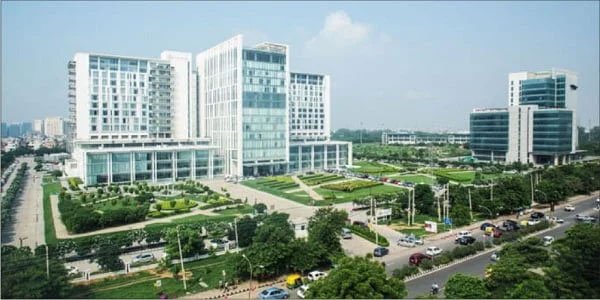
Medanta Hospital
View Profile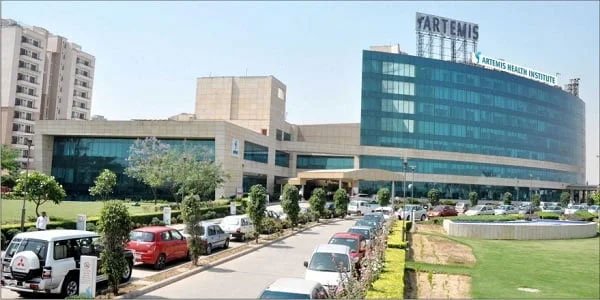
Artemis Hospital
View Profile
Apollo Hospital
View ProfileProvide Your Details
Our Health Expert will get back to you shortly.
